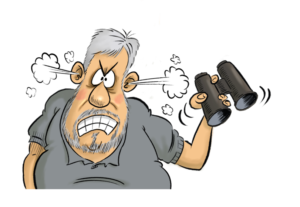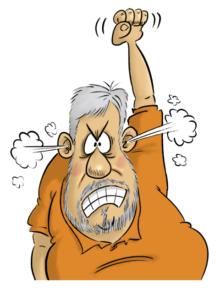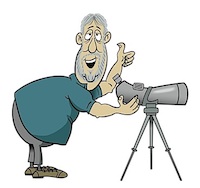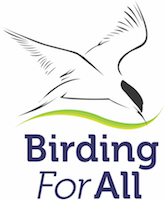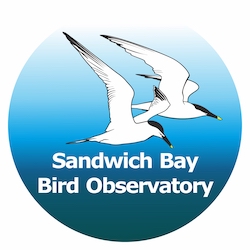This article first appeared in the June 2021 edition of Birdwatching magazine
I try to avoid politics in these pieces… as you might suspect I’m as rampant in my politics as I am in everything else. However, the recent change of US leadership is too big a thing for the world to go unremarked. Executive action already reversed policy on climate change and mad environmentally dangerous projects like unnecessary oil pipelines. Most significant is the willingness to re-engage with the world. As a major contributor to global warming, a US change of direction has massive implications, not just of itself, but if they are back in the fold it makes it easier to put pressure on the other big players, like China and Brazil, to start moving away from carbon-based energy and disastrous land use.
Meanwhile, homegrown policies need close watching. Despite all their talk of banning chlorinated chicken and hormone saturated beef, our government baulked at enshrining that in law! Moreover, licence has been given to allow bee-killing pesticides in the event of a particular crop’s insect-borne disease. Seems like politicos just don’t get it. Let me help them out with an analogy. We have laws against violent assault. What we do not do is make an exception to that law if someone ‘looks at you a bit funny’. The law is an absolute, violence is wrong. You can’t turn that tap on when it suits you. You cannot allow into our food-chain pesticides that kill bees… if the pollinators go, then we soon follow.
Wherever we are at in the Coronavirus crisis when you read this, we have learned lessons that MUST stay at the forefront of governmental policy.
Big lesson number one is that enormous numbers of staff do not have to commute daily to an inner-city office. Loads of us can work from home the majority of the time, and when we do need to spend time with colleagues this can be done in office space shared with other companies. We can build on that, giving home-working allowances makes sense as companies massively save on ‘fixed’ costs. Infrastructure comes under less pressure, buildings can be re-modelled as homes and city prices are brought down. Its win-win-win! Less pollution, less congestion, more housing at lower prices. Services, from restaurants to IT, can re-locate across the country.
Big lesson number two is that people need nature, and nature needs less impact on it. We’ve learned that we need to get into the open, breath the air, walk the walk and wake up to the bird song. However, we have also learned that where and when we get our fix is crucial to the well-being of the wild world. Obviously, many newbies need to understand that letting their dog race along the beach or making a campfire in a wood is dangerous to birds. They say you always hurt the one you love, we need re-educating into good practice so that nature is not inundated.
There are many, many more lessons from the epidemic such as how much more we should pay nurses, to how much more valuable essential workers are than footballers, city brokers or film stars. The list is long. But let me finish with just one more lesson… wildling. When we were in the tightest lockdown we let urban wildlife in particular thrive. Quiet streets, unused carparks, closed industrial plant became the playgrounds of deer and foxes and more. It clearly demonstrated that land left alone could immediately help wildlife. Now is the time to re-think what we grow and eat, how we manage green spaces and how we encourage wildlife back into people places.

